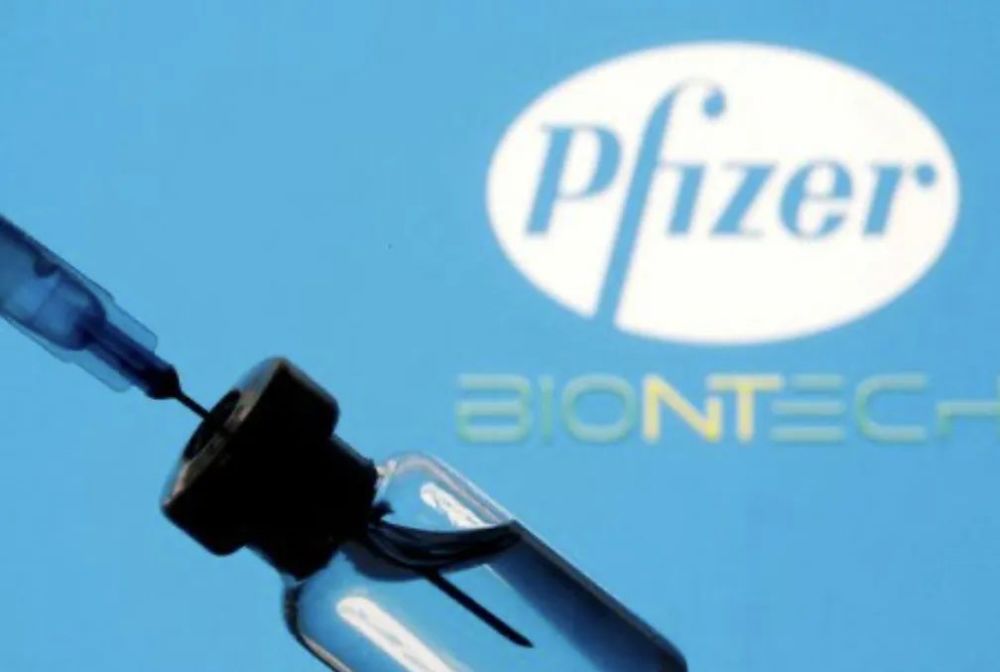The mRNA vaccine, which has "made a name for itself in the fight against COVID-19," is being used to tackle a growing number of diseases. In the future, mRNA vaccines are expected to prevent diseases including influenza, malaria, AIDS, shingles and even acne.
On Wednesday, U.S. pharmaceutical giant Pfizer and German partner BioNTech once again announced a collaboration to develop a vaccine for viral infections based on mRNA technology, the third collaboration between the two companies after the development of new coronavirus and influenza vaccines.
The two companies expect to begin clinical trials of the herpes zoster vaccine in the second half of 2022, which will combine Pfizer's antigen technology with Byantico's mRNA platform technology.

Pfizer will invest $150 million in equity and $75 million in cash for the latest deal. Pharmaceutical giants are looking for exports for ample cash flow, and the success of the COVID-19 vaccine has brought billions of dollars in sales to Pfizer. The company expects to produce 4 billion doses of COVID-19 vaccine this year, which will generate $31 billion in revenue.
Shingles vaccine is a market with huge space. According to the U.S. Centers for Disease Control and Prevention, there are an estimated 1 million cases of shingles in the United States each year. In 2020, the size of the global herpes zoster vaccine market is about 3 billion US dollars, and the data predicts that by 2023, the size of The Chinese shingles vaccine market will reach 30 billion yuan.
Shingles usually occurs in older people who have the "chickenpox" or "chickenpox-zoster" virus at a young age and can cause pain in the skin, which in most cases will disappear within a month, but sometimes lead to nerve pain, which lasts longer.
At present, only GlaxoSmithKline (GSK) has a herpes zoster vaccine in the global market, and the company's two doses of shingrix vaccine, a recombinant protein vaccine, have been listed in China; the other is a single dose of live attenuated vaccine Zostavax. In 2020, the Shingrix vaccine generated around £2 billion in revenue for GSK.
If Pfizer and Baintec's mRNA shingles vaccine is successfully developed, it will compete with GSK and will also become the first mRNA shingles vaccine.
Byntec said the vaccine for shingles infection "still has a large number of unmet medical needs." Previously, Byntec also announced that it was developing a vaccine against malaria based on mRNA technology.
The principle of mRNA is to guide human cells to make specific proteins that produce an immune response to specific diseases. The technology is likened to be as flexible and fast as a computer's operating system, allowing drugmakers to change their targets by inserting new genetic codes into synthetic mRNA, whereas traditional vaccine development techniques often take longer to produce and purify proteins and produce vaccines.
French pharmaceutical giant Sanofi has also recently accelerated its bet on mRNA technology to defend its leading position in vaccines. The company has announced that six of the ten new vaccines developed between now and 2030 will use mRNA technology. Sanofi also plans to invest €2 billion in research and development of mRNA technology over the next five years. Last year, Sanofi acquired biotech company Translate Bio for $3.2 billion.
Although Sanofi has lagged behind rivals in the competition for the new crown mRNA vaccine, as the world's largest manufacturer of influenza vaccines, the company is using mRNA technology to develop potential vaccines against influenza and other diseases. According to Sanofi's performance report, sales of influenza vaccines in 2020 amounted to 2.5 billion euros, contributing the largest revenue to its vaccine business, accounting for nearly half of its total sales of 5.9 billion euros.
Sanofi is also working on a vaccine to prevent acne, as well as a vaccine against chlamydial infection and pneumococcal bacteria. Paul Hudson, CEO of Sanofi, said: "mRNA technology is a rapidly evolving field, and our goal is to unlock the potential of mRNA in all disease areas, such as immunology, oncology and rare diseases, as well as vaccines. ”
Researchers are also experimenting with developing an HIV vaccine using the mRNA technology platform. Last year, data from an experimental PHASE I study of HIV vaccines co-led by the International Association for AIDS Vaccine Initiatives (IAVI) and the Scripps Research Institute in the United States showed that the vaccine has demonstrated effectiveness against HIV and will conduct new trials of HIV vaccines based on Moderna's mRNA platform.
Brad Loncar, founder of bio-funded company Loncar Investments, told the first financial reporter: "Now it seems that mRNA vaccine technology may become a strong transformation platform, not only the research and development of this new crown vaccine, many drugs in the future will need this innovative technology to lead." ”